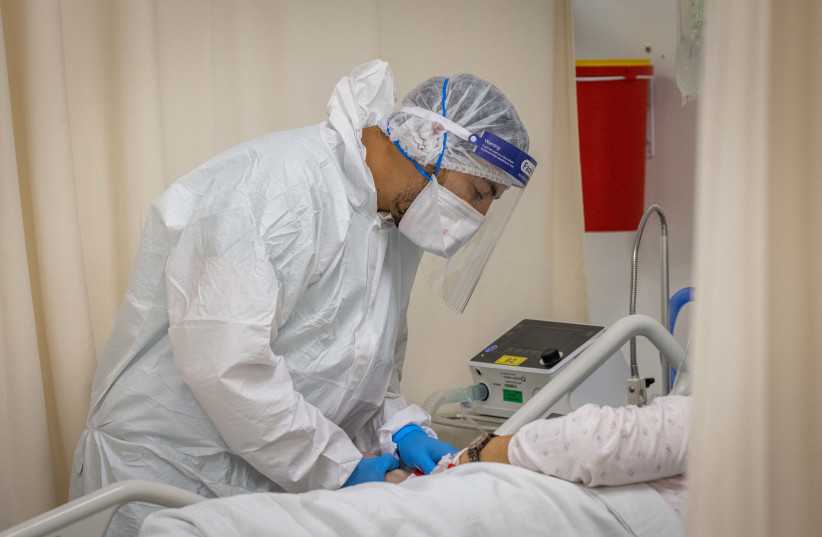A third shot of the Pfizer coronavirus vaccine reduces the chances of hospitalization by 93%, serious illness by 92% and mortality by 81%, according to an Israeli-American study published Friday night in the Lancet.
The study, which compared nearly 730,000 individuals who received the third shot against the same number who were vaccinated with two shots five months or more prior and did not receive the booster, was carried out by researchers from Clalit Health Services and Harvard University.
The observational study was done during the peak of the Delta wave – July 30 to September 23, 2021. It is the first study to be peer-reviewed that evaluates the effectiveness of a third dose of the Pfizer vaccine against serious outcomes while regulating for a variety of variables, including comorbidities and behavioral factors.
“These data provide immediate evidence for other countries now deliberating the need for a similar booster vaccination campaign” to Israel’s, said Ran Balicer, Clalit’s chief of innovation. “Every country will need to make its own decision based on its setting and the timeline of vaccinations that were provided over the last year.
“In Israel, it suggests that in view of its very early vaccination campaign and waning immunity, the decision for an early vaccination campaign was probably right and saved many lives,” he said.
Israel was the first nation to perform a mass vaccination campaign using the third boosters. Since more than 3.9 million Israelis have gotten the booster, the infection rate in the country has markedly declined. Less than 1% of people screened for the virus are testing positive and Israel has only around 230 serious cases.
Many countries around the world are now seeing a re-emergence of the virus, largely fueled by the Delta variant and its descendants. As such, these countries are considering following Israel and running a population-wide booster campaign.

Specifically, the Clalit and Harvard researchers analyzed anonymous data of 728,321 Clalit patients who received a third dose of the vaccine compared to a control group that included 728,321 people who had received only two doses. The participants were matched for demographic, geographic and other health characteristics related to serious illness, as well as other health status or behavioral issues.
Immunocompromised patients who received the third dose before July 30, 2021, were not included in the study.
Because the study was dynamically based on the daily vaccination status of participants, around 198,000 individuals switched from the unvaccinated group to the vaccinated group during the study period.
The study also included another layer of analysis at the population level, which found that in each age group, the coronavirus infection rate declined around seven to 10 days after the age group became eligible for the third shot.
“These results … convincingly demonstrate that the third dose of the vaccine is most effective in preventing severe morbidity and hospitalization due to coronavirus in different age groups and subgroups of the population,” Balicer added. “These results are extremely important and give well-founded and valid information to anyone who is still hesitant about receiving the third dose – in Israel and in other countries around the world.”
Prof. Ben Rice, director of the Predictive Medicine Group at Boston Children’s Hospital and Harvard Medical School, who also worked on the study, said that “one of the main reasons for the hesitation in deciding to be vaccinated with the third vaccine dose has been a lack of information about the effectiveness of the vaccine.
“This rigorous epidemiological study provides reliable information on the effectiveness of the third dose vaccine,” he continued. “We hope it will help those who have not yet decided to get vaccinated with a third dose.”
